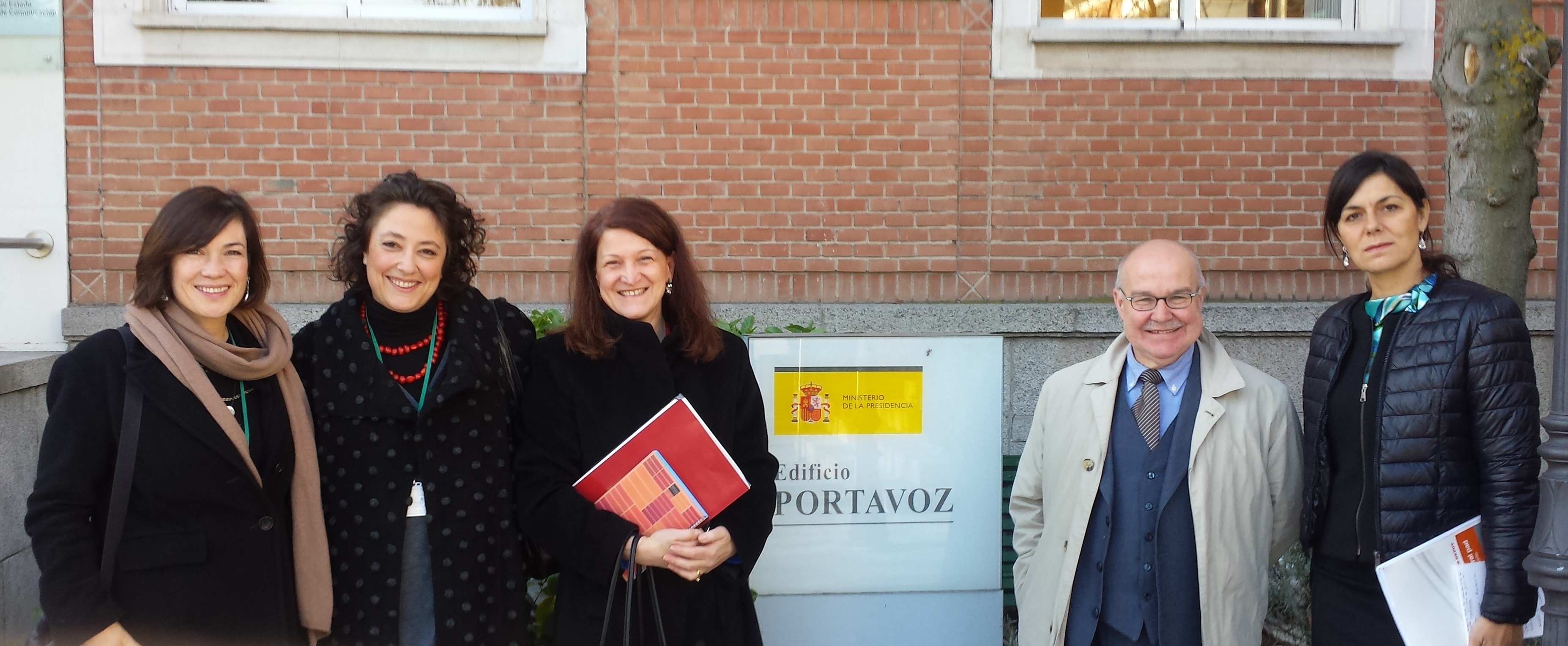Madrid, 9 December 2014 — The Spanish access to information law enters into force at the national level on Wednesday 10 December 2014, but with just one week to go to until citizens can start presenting requests, there is little sign of preparation, with the transparency portal not having been launched and the oversight body, the Transparency Council, not having been formed.
In a meeting with Secretary of State for Communication, Carmen Martinez Castro, on Thursday 4 December 2014, an international delegation of freedom of expression organisations was told that the transparency law is a priority for the current Spanish government, that they have made a “huge effort” to get it adopted and are working hard on implementation, including the portal to be launched on 10 December.
At the meeting, Helen Darbishire, Director of Access Info Europe, noted there has been no response from the government to a letter sent by civil society on 20 August 2014 asking for information about preparation for the implementation of the law.
Darbishire took the opportunity to reiterate the concerns of 65-member Coalición Pro Acceso about the quality of the law, in particular Article 18 which excludes from the right to request much information such as reports, summaries, notes, and communications.
The scope of the transparency law is another issue. When asked about a recent scandal involving misuse of travel expenses by members of the senate and parliament (including by members of the ruling party to visit lovers living in remote parts of Spain), Carmen Martinez Castro emphasised that with the division of powers in Spanish democracy, questions of parliamentary transparency should be addressed to the Parliament.
Spotlight on Media and Freedom of Expression
The other members of the international delegation were the International Press Institute, the European Federation of Journalists and the newly-formed Spanish organisation, the Platform for Defence of Freedom of Expression.
A series of freedom of expression concerns were raised and discussed at the meeting, including:
» The abuse of defamation laws to put pressure on journalists;
» The lack of transparency of state funded advertising to the media;
» The absence of an independent, specialist, audiovisual council and hence the lack of a body which plays a role in ensuring plurality and diversity in the media and the lack of independence of public televisions;
» The way that the application of the European Court of Justice ruling on the right to be forgotten by search engines such as Google is cutting media articles off from public access;
» The intellectual property law which collects from news aggregators and redistributes to the media funds for content even when that content has been published under a creative commons licence;
» The practice of the government of giving press briefings without permitting journalists to answer questions.
With respect to the problem of not permitting journalist to ask questions, the Secretary of State made a distinction between press conferences – where questions are indeed permitted – and other types of declarations and conferences where journalists are given information. She noted that the famous incident of Prime Minister Rajoy briefing journalists via a TV screen was an “anecdote” and also an exercise in transparency as it gave the media insight into a meeting of the ruling Popular Party.
The international delegates and local civil society organisations agreed on various follow-up actions and to provide more detailed information on some of the concerns to the government.
The new Platform for Defence of Freedom of Expression will commence monitoring in a more systematic way abuses against freedom of expression in Spain.
The international mission, the first of its kind was led by the International Press Institute (IPI) in coordination with Access Info Europe, and includes representatives of leading media freedom groups including the Committee to Protect Journalists (CPJ), Reporters Sans Frontières (RSF), the World Association of Newspapers and News Publishers (WAN-IFRA), the European Federation of Journalists, and the Open Society Foundations (OSF). More details are available here: http://www.access-info.org/index.php/en/spain/644-first-ipi-visit
For more information, please contact:
Helen Darbishire | Access Info Europe
helen@access-info.org +34 607 685 319
Victoria Anderica | Access Info Europe
victoria@access-info.org +34 913 656 558

